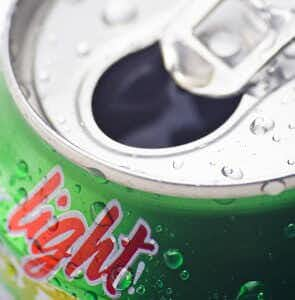
The public relations people at Brigham and Women’s Hospital, an affiliate of Harvard University, issued an apology about its headline “The truth isn’t sweet when it comes to artificial sweeteners.”
The PR people didn’t exactly retract their announcement, but they backed away from the attention-grabbing headline and apologized to reporters for wasting their time with their scary headline. Here is the statement from Erin McDonough, senior vice president of communication and public affairs:
“It has come to our attention that the scientific leaders at Brigham and Women’s Hospital did not have an opportunity, prior to today, to review the findings of the paper entitled “Consumption of Artificial Sweetener and Sugar Containing Soda and the Risk of Lymphoma and Leukemia in Men and Women”, to be published in today’s Journal of Clinical Nutrition. Upon review of the findings, the consensus of our scientific leaders is that the data is weak, and that BWH Media Relations was premature in the promotion of this work. We apologize for the time you have invested in this story.”
This is highly unusual. Was the apology warranted?
Let’s dig a little deeper into this story.
The study was published in The American Journal of Clinical Nutrition, online October 24, 2012. The investigators followed roughly 77,000 women nurses and almost 48,000 male health professionals for many years. Here are their conclusions:
“In the most comprehensive long-term epidemiologic study, to our knowledge, to evaluate the association between aspartame intake and cancer risk in humans, we observed a positive association between diet soda and total aspartame intake and risks of NHL [non-Hodgkin lymphoma] and multiple myeloma in men and leukemia in both men and women.”
One of the co-authors and arguably one of the world’s leading nutrition experts and epidemiologists, Dr. Walter Willett, told NPR, “I do think this finding is strong enough to justify further study on aspartame and cancer risk.”
Animal research conducted in Italy showed a connection between aspartame intake (in doses comparable to human exposures) and lymphomas, leukemias and kidney cancers. The Italian scientists have conducted additional rodent studies showing that prenatal exposure increases the cancer-causing effects of aspartame. Their most recent study concluded:
“The results of the present study confirm that APM [aspartame] is a carcinogenic agent in multiple sites in rodents, and that this effect is induced in two species, rats (males and females) and mice (males). No carcinogenic effects were observed in female mice.”
So, to sum up this controversial issue:
1) Long-term rodent research from Italy suggests that aspartame is associated with a range of cancers including lymphomas, leukemias, liver, kidney and lung tumors. Shorter-term studies in the U.S. have not detected such a signal.
2) The longest and largest epidemiological study of aspartame in humans is the one just reported in the American Journal of Clinical Nutrition. Although the PR office and the soft drink industry have soft-pedaled the importance of this study, it reinforces the animal research and suggests that further human research is needed.
3) The biological plausibility of a carcinogenic effect is described thoughtfully in the article by the Harvard researchers. They point out that aspartame has three breakdown products: phenylalanine, aspartic acid and methanol. Methanol is converted into formaldehyde in the body by an enzyme called ADH (alcohol dehydrogenase). This enzyme is more active in men than in women, which might possibly explain why the researchers found an association between diet soda consumption and a higher risk of lymphoma and multiple myeloma in men but not in women. Formaldehyde is a known carcinogen.
This is not a popular message. The American Beverage Association has argued that aspartame is safe. We think there remain unanswered questions. What do you think?

